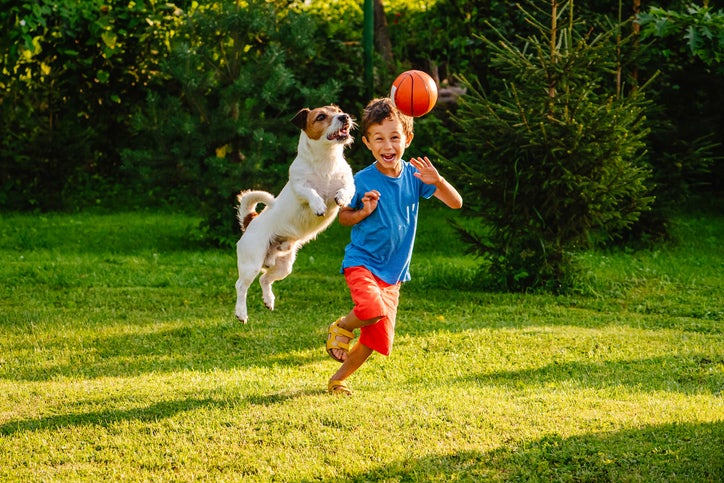Why you Should Let your Children have Pets

There’s something appealing about seeing kids and pets together. Especially if you’re an animal lover, the very idea of bringing a pet into your child’s life can conjure up idealistic images of kids playing, snuggling, and bonding with a new animal friend. But is it a good idea? There are many factors to consider, but there are plenty of great reasons to let your children have pets.
Before looking at the positives of pet ownership, let’s address the negatives. Pets are a big responsibility, and much of that responsibility falls on the parents. Having a pet requires a significant investment of time and money. Cats and dogs live for many years, so they require a commitment to an essentially permanent family member. Smaller pets, like goldfish and hamsters, don’t live as long, but their shorter lifespans present an emotional challenge. Pets require food, exercise, grooming, and veterinary care. Additionally, if a family member turns out to be allergic, you’re likely to have to experience the pain of rehoming a pet just as you’ve gotten attached.
Now that the negative aspects of pet ownership are out of the way, let’s look at all the wonderful things about getting a pet for your child.
- Pets can be good for a person’s health. In fact, research indicates that children who grow up with pets are at a lower risk of developing allergies and asthma. Pet owners require fewer trips to the doctor, and playing with dogs can lower blood pressure.
- Having a pet encourages exercise. Running, walking, playing, throwing a ball: pets give kids great reasons to head outside and get moving.
- Pets provide emotional benefits. Pets reduce stress, loneliness, and anxiety, and children with pets tend to have better impulse control, social skills, and self-esteem. Living with animals gives kids a healthy respect for nature, and children derive comfort from having an animal pal.
- Children learn while playing with pets. Caring for pets fosters responsibility, and nurturing a pet helps kids practice caregiving, developing empathy and compassion. Additionally, kids who are learning to read benefit from reading aloud to pets. Some studies even indicate that having pets helps kids become comfortable in leadership roles.
- Pets help a family to bond. Pets give families a common interest and can help slow the hectic pace of modern life. There’s even evidence to show caring for a pet together increases the sibling bond.
Pets are a great idea for a family with kids, as long as you make sure the pet you’re getting is a good fit for your family. When you’re ready to start a family, the Center for Vasectomy Reversal is here to help. Under the direction of Dr. Joshua Green, our team provides state-of-the-art treatment for men who need a reversal of their vasectomy or help with their fertility. To learn more, contact us through our website, or call 941-894-6428 to arrange a free consultation.
Recent Posts
Popular Posts
categories
- Uncategorized
- Sperm Retrieval
- vasectomy reversal
- Emergency
- Dr. Green
- sperm count
- fertility
- male infertility
- MESA
- medical care
- low sperm count
- IVF
- male fertility testing
- anesthesia
- pregnancy
- sperm aspiration
- semen analysis
- post-vasectomy pain syndrome
- infertility
- VE
- anti-sperm antibodies
- older dad
- general anesthesia
- gender reveal party
- post-operative infections
- baby name
- parent
- baby's first year
- fertilization process
- spinal anesthesia
- ACS Fellow
- nutrition tips
- concierge-level care
- fertility planning app
- azoospermia
- out-of-town patients
- V-V
- post-vasectomy reversal
- conceiving
- vasectomy
- vasoepididymostomy
- smoking
- sperm quality
- baby registry
- infographic
- surgical care
- surgical consultation process
- prostate cancer
- baby gender
- family time
- COVID
- Baby Shower
- Child Care
- Halloween Costume Ideas for Babies
- Halloween
- Halloween Safety Tips
- Celebrity Infertility Spotlight
- Postpartum
- testosterone
- Father's Day
- Father
- Men's Health
- Thanksgiving
- Pregnancy Announcement
- Parenting Tips
- Sperm
